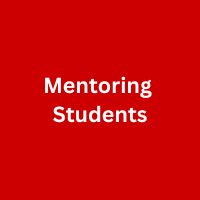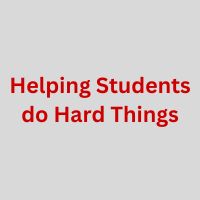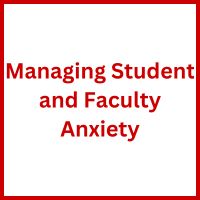 |
| Way back before Thanksgiving, after an academic integrity board hearing, I chatted with the student board members about their sense of AI issues in daily student life. They said it feels like there is a growing gulf between classes that use AI regularly and don’t identify any significant limits to AI use vs. classes where AI use is strictly prohibited across the board. |
Teaching Tips
Articles and resources to empower your teaching experience.
What Have We Learned?

Calvin and Hobbes sum up what the week before Thanksgiving can feel like, both for us and for our students. There is too much to do in too little time, in a world that feels too chaotic. Even simple tasks can feel overwhelming and complicated. If we’re being honest, who out there doesn’t just want to take a nap and hope that things seem better when we wake up?
4 Better Ways to Grade Team Projects
 |
| As we head into the final weeks of the semester, many of our classes are busy with group presentations and team projects. If you find yourself getting preemptively frustrated with the challenge of grading a team project, take a minute to read Lauren Vicker and Tim Franz’s suggestions about transparent rubrics, mid-project feedback, and opportunities for peer evaluation. |
What is an Exam Wrapper and Why Should I Care?

As we head into the final weeks of the semester and focus on making it through the end of the syllabus, with all of the class prep, assignment organizing, and grading that entails, remember that your students are also facing the pre- and post-Thanksgiving deluge of work and stress. It’s never too late to try a new way to check in with them and help them think through their own learning process, especially at a time of the semester when they may be focusing only on deadlines.
In-Class Assessment Strategies
 |
What a great turnout at last week’s (11/6/25) Teaching Matters morning coffee! Sixteen colleagues from across academic divisions and offices joined us to wrestle with the challenges–new and old–of designing and implementing effective in-class assessments. We talked through some of our reasons for using in-class assessments, including long-term pedagogical practices and more recent AI-related concerns. In the process, colleagues shared a variety of approaches that are working in their classrooms, including:
|
Mentoring Students

These resources address ways to connect with our students as mentors:
- The Wellbeing Enhances Learning (WEL) Model from University of Minnesota
- Mentoring Students Can Make a Difference by Camey Andersen and Kenneth Alford
- Mentoring Undergraduates by Maryellen Weimer
- Using Interviews to Assess and Mentor Students by Barbara Gardner & Kenneth Alford
- The Benefits of Student-Faculty Mentoring Relationships from Watermark
- How to Get the Most Out of College from The New York Times
- Students Think Faculty Should be Mentors.
Engaging Students in Classroom Learning

These articles give ideas on student engagement during class time:
- Overcoming Student Fears Surrounding Class Discussions by Brent Saccucci
- How to Make Your Teaching More Engaging Advice Guide by Sarah Rose Cavanagh
- How to Hold a Better Class Discussion Advice Guide by Jay Howard
- Want to Engage Students and Strengthen Your Teaching in the Age of AI?
Helping Students do Hard Things

We can help students engage in the hard sustained work of learning; these articles have some useful insights:
- ‘I Did Feel Seen’ How creating ways to meet students individually can help them buy into a course by Beckie Supiano
- More Than a Name: How Assignment Labels Influence Student Learning and Performance by Salina Randall and Julie Ann Stuart Williams
- Beyond Behaviorism: Why Motivation Matters by Katie Muenks and Carlton Fong
- Learning Lessons How professors are encouraging students to buy into the project of learning by Beckie Supiano
- How One College Aims to Help Students Fail Better by Ashley Mowreader
- Unpacking Complexity from CfLT Archives
Supporting Student Reading

These articles give some good ideas for supporting our students with reading:
- Searching for Wonder: Teaching Literature with Student-Selected Texts by Mary Isbell
- To get students reading, let them pick the texts by Beckie Supiano
- How to Move from the ‘Main Idea’ to ‘Background Knowledge’ by Youki Terada (written about young readers but relevant for college students)
- Assigned Readings: Questions to Ask Yourself by Nicole Donawho
- How to Use a Course Workload Estimator with Betsy Barre
- Reading Assignments, Activities, and Approaches to Promote Learning by Maryellen Weimer
Managing Student and Faculty Anxiety

Both students and faculty feel anxious sometimes; here’s some articles exploring ways to manage or relieve anxiety:
- How I manage my anxiety as an educator by Lauren Jewett
- Instructor Strategies to Alleviate Stress and Anxiety among College and University STEM Students by Jeremy Hsu and Gregory Goldsmith
- The Wrong Way to Motivate Your Kid by Russell Shaw
- Helping Students Overcome Presentation Anxiety by Traci Levy
- Implementing Meditation in the Higher Education Classroom by Steven Haberlin
- Building a Learning Sanctuary: Fostering Resilience in Our Students by Mays Imad
